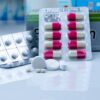As we all emerge from our bubbles of limited contact with others, we are walking straight into the double whammy of flu season and COVID-19 germs. Can your body fight off exposure to the flu and COVID? Your immune system feeds off the basics of life — sleep, movement, food and love. So, give your immune system all the help it needs by following expert advice.
Sleep: Hit the snooze button. (You know you want to)
Lack of sleep wreaks havoc on an already-shot immune system, Freida Wiley, PharmD, told Medshadow.
Some drugs will put you to sleep, but all sleeping aides come with side-effect risks. If you think you’ve tried everything, but you haven’t tried some of those tips on the list below, keep trying, Dave Walker, RPH and a MedShadow Medical Advisory Board member, told MedShadow:
- Avoid caffeine or other stimulants, such as caffeinated tea or energy drinks and chocolate
- Get exercise, like walking or cycling
- Don’t take daytime naps
- Stick to a regular sleep schedule
- Know that medicines you take can affect sleep patterns
- Don’t use electronics with a screen (such as a smartphone or tablet) an hour before going to bed
- Try sleep-inducing meditation audio tapes or apps
- …Drink a cup of warm milk before bed (really, it works!)
If you’re still not sleeping, check in with your doctor about any medicines or supplements you take. Insomnia could be one of a drug’s side effects. If that’s the case, ask your doctor if you can cut back on it, or stop using it altogether, or opt for an alternative med that works just as well without keeping you awake.
Walker noted that some medications, including corticosteroids, thyroid hormones and certain blood pressure medicines, may lead to changes in your regular sleep pattern. Physical or medical conditions, such as headaches, allergies and upper respiratory conditions or conditions causing pain, can impair your sleep, too.
Exercise: It Doesn’t Have To Be Painful
A 2019 review in the Journal of Sport and Health Science found that moderate exercise can boost your immune system’s defense activity and metabolic health. By keeping your immune system healthy, you increase your chances of warding off viruses — COVID-19 and others. Even better, exercise remains one of the most effective (and science-backed) ways to do so.
The US Department of Health and Human Services suggests a minimum of 150 minutes of moderate exercise or 75 minutes of vigorous exercise per week.
Try Walking: It’s free and you already know how to do it.
If you’re out of shape, walking is a safe and very effective way to engage all the parts of your body, including your cardiovascular system. New Yorker Peter Filichia hadn’t exercised in years. But when the COVID-19 shut down began, he decided to avoid public transportation and chose to walk four miles to and from his girlfriend’s apartment daily. Peter said, “At first it was difficult, four miles is a long way! Now I hate to miss a day. I’ve lost 37 pounds, [and I] get outside and get to see Linda!”
Ready for a workout? Our Andrew Gutman, MedShadow’s content manager, demonstrates an at-home workout you can modify based on your fitness level. “… training starts where you are. If you’ve never lifted a weight or if you’ve been training for years, this activity will adapt to your needs,” Matt Pudvah, Head strength coach of the Sports Performance Institute at the Manchester Athletic Club in Massachusetts, told MedShadow.
Bonus: you’ll sleep better if you get moving. A survey from the Centers for Disease Control and Prevention (CDC) of 150,000 participants, found that those who did any exercise, no matter how light, reported significantly better sleep than non-exercisers.
Eating: You Do It Anyway, Make Sure You Do It Well
Find immune system magic in citrus (vitamin C- rich foods), such as oranges, sweet and hot peppers, kiwi and grapefruit; ginger — for use in cooking, teas and smoothies, turmeric — which offers strong anti-inflammatory benefits, and a spice commonly found in Thai and Indian curry dishes and in teas, suggests Alison Acerra, RDN, founder of Strategic Nutrition Design and a Medshadow Medical Advisory Board member.
Be wary of elderberry extract, which is becoming popular for its immune-boosting benefits. While it has, in fact, proven effective against influenza (by way of a big increase in cytokine production), “cytokine storm” or very high cytokine production has been implicated in severe Covid-19 cases. For this reason, it’s probably safer to avoid it during the pandemic.
“If you’re eating fresh, raw or lightly steamed vegetables, you’re helping your body fight all sorts of diseases and keeping your immune system healthy,” Kelly Turner, PhD, says.
“Let’s face it,” Acerra adds, “there may be a little stress eating [going on] in these times. It’s normal and to be expected. No need to beat yourself up, but do be mindful of the impact of added sugar and processed carbs. They might cause rapid blood sugar fluctuations that leave you exhausted and depleted.”
Feed your biome Research shows your gut biome has loads of importance in building a healthy immune defense that helps ward off opportunistic pathogens, says Acerra. She believes that feeding a “good-gut” means increasing the count of beneficial bacteria in your stomach, (with probiotics) and feeding those probiotics to maintain high counts (with prebiotics). Examples of probiotics include fermented foods, such as custom-made (not store-bought), kimchi and sauerkraut (with fermented cabbage), miso, pickles (prepared without vinegar), kefir, yogurt and tempeh (fermented soybean). Some examples of prebiotics are any foods that contain fiber (PLANTS!), and there are many that fit the bill — whole grains, fruits and veggies, beans, lentils, nuts and seeds.
Love And Companionship
You don’t need a study to tell you that friends and companionship keep you healthy (but there are studies that do show that). Now is a tough time to make new friends, but there are friends waiting for you — pets.
New Yorker Theo van der Meer found the pandemic to be the perfect time to adopt a dog. “Since I had to work from home, I could be attentive to a new puppy with all his energy and need for attention. Now we’ve been sheltering for six months and I’ve had time not only to bond with and train my new best friend, but also get outside more often for walks.”
Owning a pet can decrease blood pressure, lower triglyceride levels and even force you outside, according to the CDC. The health-related benefits of having a dog or cat, for example, are so vast that there is an entire branch of interventional pet therapies for everything from depression to mobility issues, points out Penny Martin, an advocate for rescue dogs.
The take-away from all this? When it’s time to step out of the sheltered existence you’ve been living in and mingle with the world again, you can boost your odds of remaining healthy by doing what you want to do anyway — sleep well, eat well, move around a lot and keep your friends, or pets, close.






